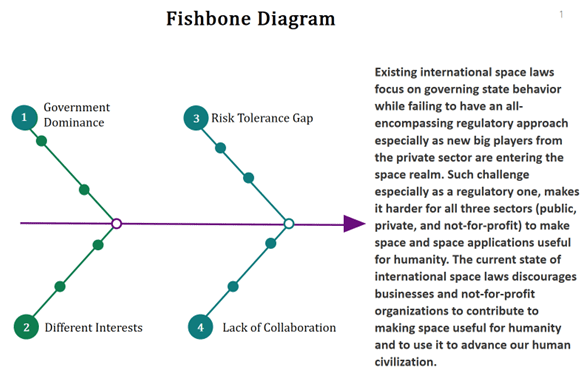Guest blog by Abdullah Altaleb, IPP’23
Prior to joining IPP, I knew that having some unknown unknowns in public policy work is inevitable. Knowing what you know is for sure beneficial but knowing what you do not know and turning that into something you know is invaluable. During the program, I was able to identify some unknowns and worked on either turning them into something known or simply to known unknowns, which is a lot better than not knowing what you do not know.
Some of the key learnings from the course are what public policy implementation success is and how it is measured. The course outlined two dimensions of public policy implementation success that we do not usually think of when measuring public policy implementation success. These two are functionality and legitimacy and it is my belief that in the public policy sphere, public policy professionals often overlook functionality and legitimacy. Functionality has to do with how implementation actually solves the problem where legitimacy is all about the trust and support, we get from stakeholders on the public policy we intend to implement.
Another key learning is the reflection I had on Rob Wilkinson’s 4P model of leadership. Reflecting on the aspect of people in the model, I came to realize that I am egoistic often times and only think about what is in it for myself without including others. Sometimes I forget that it is a two-way street, and it goes both ways. Even when I do think of others, I tend to think of them in a way that relates to me but not the other way around. It takes high self-awareness to be able to spot such an observation and the materials helped me to reflect on how I communicate with people and how my communication should be.
One last key learning I would highlight is about communicating learnings and leads with stakeholders. Organizations in today’s world put heavy emphasis on progress indicators but not without a bias. If organizations pay more attention to learnings, overall progress would be much better as this would make future progress more efficient and more effective. Though it seems like many organizations are too busy trying to deliver big results where learnings and leads do not count. What counts is how many big results are delivered but that would not have happened had they not learned and secured leads. Paying much closer attention to learnings and leads can make results we always chase after more impactful simply because learnings and leads are the root causes of results.
Moving to the implementation challenge I worked on, I actually changed jobs over the course of the program and so I started with a challenge that Small and Medium Enterprises face and ended up with working on a Space Industry related challenge. The latter is about the existing international space laws and that they focus on governing state behavior while failing to have an all-encompassing regulatory approach, especially as new big players from the private sector are entering the space realm. Such a challenge, especially as a regulatory one makes it harder for all three sectors (public, private, and not-for-profit) to make space and space applications useful for humanity. The current state of international space laws discourages businesses and not-for-profit organizations to contribute to making space useful for humanity and to use it to advance our human civilization.
Throughout the program, I was able to understand my challenge in a much deeper level and I learned that there is a geopolitical aspect to the challenge that is crucial and contribute a lot to the nature of how international space laws are. In addition, I learned that it is a little early now for the Saudi space sector regulator to develop comprehensive space laws, as the ecosystem is still not mature yet. I am confident that we have a bright future ahead of us and Saudi can work on developing comprehensive space laws and contribute to developing an all-encompassing regulatory approach to international space laws, which will make space useful for humanity and to advancing our human civilization.
We are now a working group that consists of myself, and three other colleagues and we had meetings, brainstorming sessions, and we are carrying out the work as long as we serve in the space industry. Another progress is that I read a book on space economy and discussed what I learned with the group. I also gave each member a copy to read and the knowledge the book provides will be of much help in our future work tackling this challenge.

The materials of the course helped me to develop an effective approach to solve problems where I now have a more comprehensive approach in which I look at not only the solution but also its functionality over time and its legitimacy.
Problem-Driven Iterative Adaptation (PDIA) is a concept that builds upon one’s wisdom because through iterations, you are most likely to see that we are perfectly imperfect and that we always can do something better or at least get to know something that we missed to see.
This is a blog series written by the alumni of the Implementing Public Policy Executive Education Program at the Harvard Kennedy School. 47 Participants successfully completed this 7-month hybrid program in December 2023. These are their learning journey stories.
